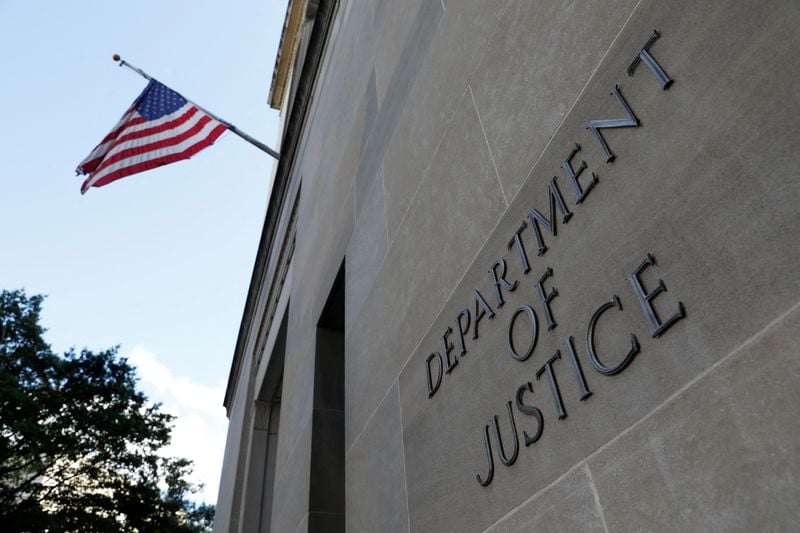Baltimore, Maryland – U.S. District Judge Stephanie A. Gallagher sentenced Christopher Guy, age 30, of Tampa, Florida to 65 months in federal prison, followed by a three years of supervised release, for conspiracy to commit wire fraud and mail fraud, and aggravated identity theft. Judge Gallagher also ordered Guy to pay $176,970 in restitution.
The sentence was announced by United States Attorney for the District of Maryland Erek L. Barron; Acting Special Agent in Charge Troy Springer, of the Washington Regional Office, U.S. Department of Labor Office of Inspector General (DOL-OIG); Postal Inspector in Charge Greg L. Torbenson of the U.S. Postal Inspection Service – Washington Division; and Chief Gregory Der of the Howard County Police Department.
The Coronavirus Aid, Relief, and Economic Security Act (CARES ACT) was enacted on March 27, 2020, to assist individuals experiencing financial distress as a result of the Covid-19 pandemic. Among other things, the CARES Act established the Federal Pandemic Unemployment Compensation program (FPUC), which provided federal funds to state agencies responsible for the administration of unemployment benefits. The FPUC funds were provided to supplement regular unemployment compensation payments to qualified applicants.
According to his plea agreement, from May 26, 2020, to August 5, 2020, Guy and his co-conspirators submitted fraudulent applications, using the personal information of identity theft victims, claiming unemployment benefits to which they were not entitled. The applications were submitted through the internet to the Oklahoma Employment Security Commission (OESC) and other state workforce agencies. Based on the fraudulent applications, OSEC and other workforce agencies disbursed benefits, including FPUC funds, through debit cards issued in the names of the identity theft victims. The debit cards were mailed to addresses in Maryland and elsewhere, that were accessible to Guy and other conspirators. Guy and his co-conspirators used the debit cards to withdraw money and to conduct retail transactions.
For example, between July 27 and August 5, 2020, Guy conducted fraudulent transactions using debit cards in the names of at least seven identity theft victims and funded with unemployment compensation, including FPUC funds. On August 5, 2020, Guy used a debit card issued in the name of an identity theft victim to purchase a laptop computer for $2,225.99, from a retail electronics store in Elkridge, Maryland. Howard County Police officers, who had been called for a possible fraudulent purchase, approached Guy in the parking lot. Upon questioning by the officers, Guy falsely stated that he had lost the receipt and that he made the purchase using a card he produced bearing no name. When officers advised that the number on the card did not match that listed on the receipt reprinted by the store, Guy falsely claimed that he must have lost the card he used to purchase the laptop. Guy was then arrested by officers, who located the card used to purchase the laptop in Guy’s pocket.
A search of Guy’s vehicle by Howard County Police Department officers recovered $1,500 in cash, four debit cards issued in names other than Guy’s, multiple electronic devices, and a room key from a hotel in Chevy Chase, Maryland. A search warrant was obtained for Guy’s hotel room and officers recovered 13 additional debit cards issued in various names, additional electronic devices, receipts from retail purchases, and $11,619 in cash. DOL-OIG agents obtained surveillance images that showed Guy using the debit cards funded with fraudulently obtained unemployment benefits at ATMs within a mile of the hotel where he was staying. Twelve of the debit cards that were used in these transactions were recovered from Guy or his hotel room on August 5, 2020.
A forensic examination of the electronic devices seized from Guy and his hotel room revealed internet searches and browsing history relating to unemployment benefits; notes containing the mailing addresses where the fraudulent debit cards were delivered by mail; and a listing of the last four digits of each of the 18 debit cards recovered on August 5, 2020, each with a monetary balance listed next to it.
Agents with DOL-OIG also learned that the 18 debit cards seized from Guy or his hotel room were issued as a result of 16 fraudulent applications for unemployment benefits submitted in the names of identity theft victims. The 16 fraudulent claims resulted in the disbursement of more than $176,970 in unemployment and FPUC funds, which losses were reasonably foreseeable to Guy.
On May 17, 2021, the Attorney General established the COVID-19 Fraud Enforcement Task Force to marshal the resources of the Department of Justice in partnership with agencies across government to enhance efforts to combat and prevent pandemic-related fraud. The Task Force bolsters efforts to investigate and prosecute the most culpable domestic and international criminal actors and assists agencies tasked with administering relief programs to prevent fraud by, among other methods, augmenting and incorporating existing coordination mechanisms, identifying resources and techniques to uncover fraudulent actors and their schemes, and sharing and harnessing information and insights gained from prior enforcement efforts. For more information on the Department’s response to the pandemic, please visit https://www.justice.gov/coronavirus.
Anyone with information about allegations of attempted fraud involving COVID-19 can report it by calling the Department of Justice’s National Center for Disaster Fraud (NCDF) Hotline at 866-720-5721 or via the NCDF Web Complaint Form at: https://www.justice.gov/disaster-fraud/ncdf-disaster-complaint-form.
United States Attorney Erek L. Barron commended the U.S. Department of Labor-OIG, U.S. Postal Inspection Service, and the Howard County Police Department for their work in the investigation. Mr. Barron thanked Assistant U.S. Attorney Sean R. Delaney, who prosecuted the federal case.
For more information on the Maryland U.S. Attorney’s Office, its priorities, and resources available to help the community, please visit https://www.justice.gov/usao-md/community-outreach.
# # #
